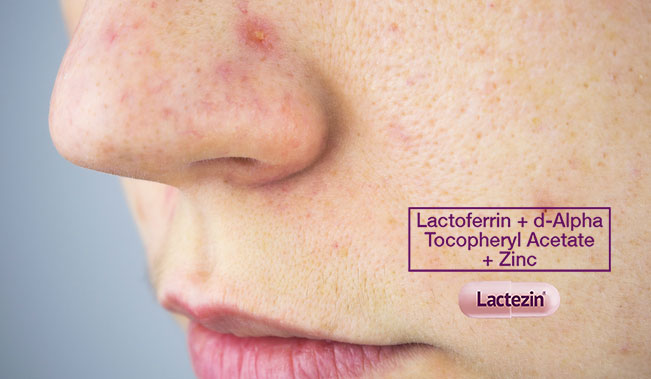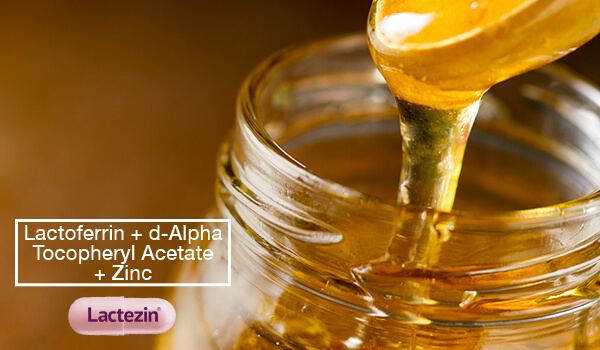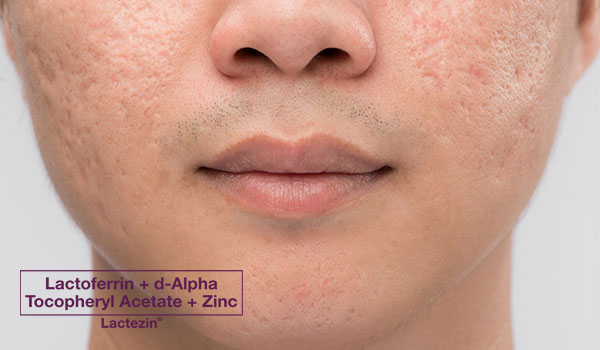The 9 Best Medicine and Procedures for Acne Scars & Dark Marks

Acne sufferers, can you relate to this statement? “Sometimes, dealing with post-inflammatory scarring and taking different medicines for dark spots is a lot more stressful than the breakout itself.”
If you found yourself saying, yes, then continue reading below.
Acne scarring and post-inflammatory hyperpigmentation aka the dark spots after a breakout are often confused with one another, but they are both totally different things. Acne scars either develop when an overgrowth of tissue produces a raised scar or when the loss of tissue causes a pitted or uneven texture on the skin.
Meanwhile, post-inflammatory hyperpigmentation is not raised or depressed, it is simply darker than the surrounding skin. It is also frequently called “pseudo scarring” because it doesn’t truly damage the follicle, it just leaves a dark mark for a period of time. You can learn more about the different types of acne scars here.
Now that you can properly identify your acne scars and marks, here are some of the best ways on how you can treat them and get them to fade away faster than before.
The best medicine for acne dark spots:
1. Vitamin C
Vitamin C serums are often found in one’s skincare arsenal. But if you haven’t discovered the amazing benefits of this antioxidant, then it’s time to update your routine. Its more generic name, L-ascorbic acid, is known to help lessen the appearance of dark marks by boosting collagen, so you can have a more evened out skin tone.
2. Alpha Hydroxy Acids (AHAs)
When it comes to exfoliation, chemicals are our friends. AHAs, especially glycolic acid, can help slough away the outer layer of the skin, revealing a smoother and more evenly-toned appearance underneath. You can speed up the skin’s natural exfoliation process by veering away from wash-off products like cleansers and instead choosing AHA leave-on treatments like toners, creams, and gels.
3. Hydroquinone
This bleaching agent works by blocking the enzyme in charge of melanin production, therefore lightening the skin. Unlike other solutions, it works on all skin tones, but you may need to steer clear from it if you have sensitive skin. So better talk to your derma first before beginning this treatment.
Hydroquinone is accessible through prescription, although it’s worth considering a more subdued OTC option first. To properly use it, it should be carefully applied to the dark spots only to impede the unwanted lightening of your natural skin color.
4. Topical Retinoids
When it comes to anti-aging, retinoids are considered to be a star. Fortunately, it’s more than just that—retinoids can also reduce epidermal melanin. Thanks to its ability to go deep beneath the skin and speed up cell turnover rates, it can even out skin tone and texture.
However, individuals with a darker complexion should be cautious when using it. While prescription-strength retinoids are great at fading marks, using too much could possibly lead to more hyperpigmentation. So try the lowest strength first to see if your skin can tolerate it before moving on to something more potent.
The best dermatologist procedures or medicine for acne scars:
1. Dermabrasion
Dermabrasion is one of the most popular and effective treatments for acne scars. This kind of procedure is best for scars that are shallow or close to the surface like rolling or boxcar scars. It is done with a fast-rotating brush that can deeply exfoliate the top later of the skin.
2. Chemical peel
Chemical peels by professionals are done by applying a chemical solution to the scar tissue to get rid of the top layer of skin and minimize the appearance of deep acne scars. You can only have one deep peel, but maintain results with mild and medium peels since side effects can include changes in natural skin color.
3. Fillers
To help plump up and smooth out depressed acne scars, one can try injectable fillers. Injecting collagen, fat, or other substances into the skin can make the scars less noticeable. Unfortunately, results are temporary. While some are permanent, most fillers only last between 6 to 18 months before they need to be redone.
4. Punch Excision surgery
This is a minor in-office surgery wherein the doctor cuts out the individual acne scars and repairs the wound with a skin graft or stitches which can naturally fade over time. This is normally done with a technique called subcision wherein the doctor inserts needles under the skin to soften fibers below a scar.
Try OTC medicine for acne dark marks and pimples!
Over-the-counter anti-acne treatments can help treat pimples from the inside and keep them from coming back. Try Lactoferrin + d-Alpha Tocopheryl Acetate + Zinc (Lactezin)! Its unique combination of natural ingredients and antioxidants work together to heal and repair damaged skin cells, fight pimple-causing bacteria, and reduce sebum production.
When it comes to pimples, trust only The Pimple Expert. Take twice daily to see results in as early as 2 weeks.
Lactoferrin + d-Alpha Tocopheryl Acetate + Zinc (Lactezin) is available in all leading drugstores nationwide. You may also purchase online through Lazada and Shopee.
SOURCES:
https://www.verywellhealth.com/post-inflammatory-hyperpigmentation-15606
https://www.healthline.com/health/beauty-skin-care/hyperpigmentation-acne#What-you-can-do
https://www.mayoclinic.org/diseases-conditions/acne/expert-answers/acne-scars/faq-20058101


